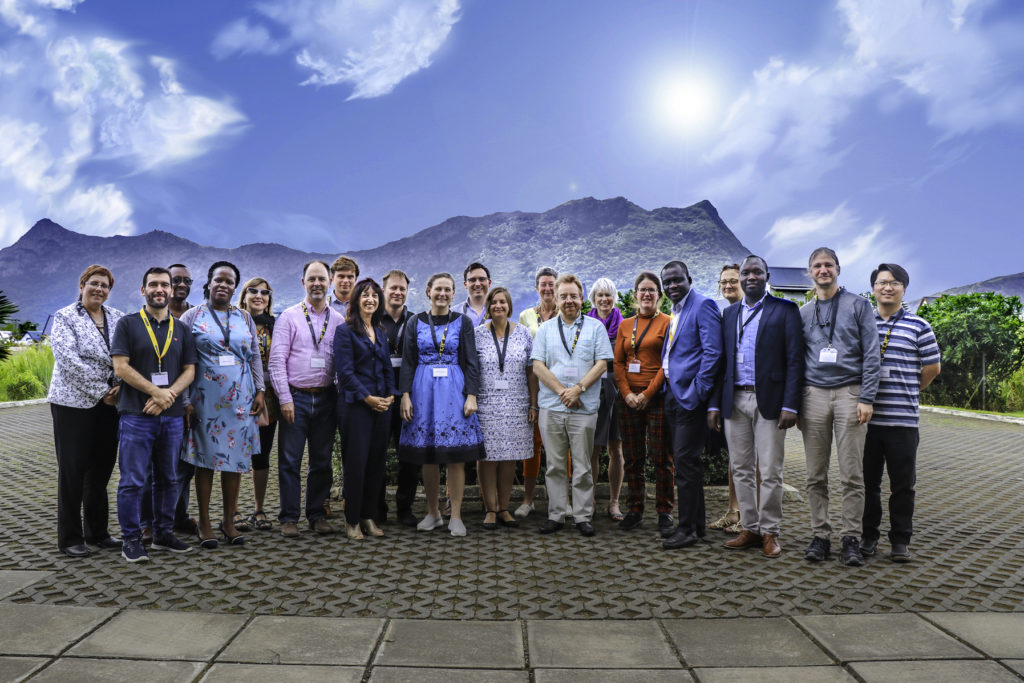
Curtin Mauritius recently hosted a workshop for the Curtin Open Knowledge Initiative (COKI), attended by global experts on research evaluation, data science and scholarly communications. The attendees discussed empowering universities to work with local and global communities in the production of knowledge, and how to broaden the impact of higher education and research.
The meeting took place at Curtin University’s campus in Moka, Mauritius, with participants from Uganda, Rwanda, the Netherlands, Ghana, UK, USA, Kenya, Spain, South Africa, Ukraine, New Zealand and Australia.
COKI is developing a broad program of work on the theme of ‘open knowledge institutions’ (OKIs), supported in the first instance through a 2-year strategic research grant from Curtin University. The goal of the COKI project is to develop tools and data that will allow universities to understand how effectively they are operating as OKIs; and to support strategic changes in higher education and research. This includes exploring ways in which information about research might empower Universities to work with local and global communities in the production of knowledge and in broadening the impact of higher education and research.
The workshop concluded that an agenda that links equity and inclusion to open scholarship practice is critical for universities to retain their relevance and influence in future knowledge societies. Agendas for open access and data sharing, equity, diversity and inclusion, and public engagement and impact, must be linked and be led by progressive institutions to build societies that support knowledge making and transfer in both local and global contexts.
Workshop participants were passionate about the opportunities to develop a shared agenda, based on mutual support, with the goal of creating institutions which nourish knowledge work and knowledge workers, support a flourishing scholarly environment, and through this maximising the positive impact of universities as institutions.
The specific recommendations of workshop participants were:
- To collectively and actively build a community to advise, support and expand the scope of the OKI agenda.
- To develop a communications strategy and resources to enable community members to carry this agenda to their home organisations and beyond.
- To enhance, document, and plan for community engagement in the data infrastructure including future planning for governance, access, ethics and sustainability.
